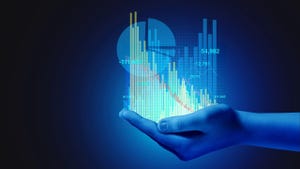Why Ballmer's Departure Isn't On My Worry ListWhy Ballmer's Departure Isn't On My Worry List
Yes, our organization is heavily invested in Microsoft products, but here's why the CEO's exit won't keep me up at night.

Steve Ballmer's impending departure is a big deal ... if you work at Microsoft. Or if you're worried about your MSFT stock price. (Disclosure: I don't hold any individual tech stocks.) But when you're in the business of running an IT organization, you tend to take the CEO change at yet another large, legacy supplier in stride.
I'm not saying that leadership changes aren't important. But I ask myself several clarifying questions before adding a supplier CEO change to my worry list.
1. Could the change destabilize or even threaten the viability of our supplier in the short- or medium-term?
If my organization depends on a startup or small, established company for something mission critical, and a change in leadership signals that the company is on the decline, I would start doing contingency planning with my IT colleagues and the organization's leadership team. But a CEO change at Microsoft doesn't worry me, even if the company has lost its "we control everything about computing" mojo.
[ For another perspective on Ballmer's departure, see Ballmer Is Off The Matrix. ]
Could a new CEO help restore Microsoft to some semblance of dominance? Sure. But as an end user rather than an investor, I'm less concerned about the upside of that outcome than the potential downside to my organization.
2. Have I fallen into the "single supplier" trap?
A change in vendor leadership can sometimes lead to product price increases and thus hurt my bottom line. So this one is at least a candidate for my worry list. We, like many other enterprises, run a truckload of ISV apps on Windows server/SQL platforms, and we pay maintenance fees on many of the critical ones.
But we've diversified in other areas. I remember when my staff was insistent that Windows Mobile was going to be the light and the way. (The Microsoft machine had done a great job of convincing them that "standardization" was the easy and sensible path.) "Nobody's going to use that Apple stuff for business!" was the anti-rallying cry when we started deploying iPhones. Meanwhile, as an observer I've noted that Sears and Office Depot are now using iPads and iPhones as a part of their retail operations.
Point is, we didn't give in to the fact that our IT staff was comfortable with the Microsoft ecosystem. We use non-Microsoft content management, phones and systems management tools. So our future (and budget) isn't completely dependent on Microsoft -- another reason Ballmer's leaving isn't at the top of my worry list.
 Global CIOs: A Site Just For You Visit InformationWeek's Global CIO -- our online community and information resource for CIOs operating in the global economy.
Global CIOs: A Site Just For You Visit InformationWeek's Global CIO -- our online community and information resource for CIOs operating in the global economy.
3. Am I depending on this supplier for innovations?
I need some tech suppliers, most notably my ERP supplier, to produce innovations on a regular basis, or at least enable my team to produce innovations on its platform. But Microsoft isn't my ERP supplier.
I'm not looking to Microsoft for innovations. I'm looking to spunky startups or larger, enterprise-focused suppliers (not the makers of Xbox and Kinect). Granted, Microsoft's experiments with tablets are interesting, but it's the follower, not the innovator, in this sector. And don't get me started about Windows 8.
4. Is this the founding, visionary CEO?
When CEO Steve Jobs died, it rocked the world of enterprise customers who depend on Apple. Jobs not only had founded Apple, but he led it out of hard times. Will Jobs successor Tim Cook be able to sustain the company's innovation?
Students of business understand all too well what happen when a visionary founder leaves a company. The canonical example is Edwin Land, the scientist and visionary who led Polaroid to temporary greatness. Polaroid fortunes didn't do so well after Land's departure. But Ballmer's not the Microsoft founder. He did a pretty good job of working with what he had, sustaining Microsoft's gigantic machine during a fiercely competitive period. Microsoft has already proved that there's life after Bill Gates. Ballmer and Microsoft's board are changing direction to become a "devices and services company." With Microsoft taking a year to find and prepare its next CEO, you can bet the transition will be orderly -- and if the company does it right it will re-instill some product and strategy mojo. Worst-case scenario, Microsoft will muddle along, churning through a couple of CEOs (much as HP did) while watching its stock price dive. But even under that scenario, it still would invest in and ship key products and provide support. If I were a day trader or stock analyst, I might agonize over Microsoft's CEO transition a lot more, but I'm in the business of enterprise IT, so I'm just watching with casual interest.
About the Author
You May Also Like






